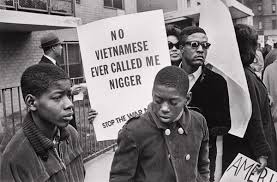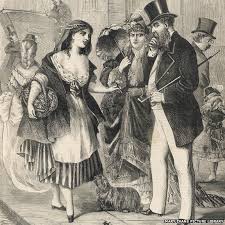- One direction - 16th July 2020
- What’s in a word? - 11th July 2020
- Time not on your side - 22nd June 2020

Our columnist The Commentator examines more examples of the meaning of words changing over time, and how their use has become a stick with which to beat offenders.

When it is coupled with FUCKING (or the ‘F’ word) it becomes doubly shocking.
On June 24 police officers in Wilmington, North Carolina, USA, were sacked because of conversations that had been accidentally recorded in a patrol car.

In the most egregious of the taped exchanges, one of the cops, boasting about plans to buy an assault rifle, said: “We are just gonna go out and start slaughtering them”.


It is the same with ‘FUCKING’.
As I’ve already said (or should that be ‘mentioned’!) listening to the conversation of teens that walk past my house the word is used in almost every sentence, as in:
“Fucking slow down!”.“Fucking speed up!”. “I fucking can’t walk that fast!”. “You fucking did last weekend!”. “Oh, fuck off!”
Its most common usage now appears to be as a noun or verb in various phrases to express annoyance, contempt, or impatience.

But is its use really so bad?
Many other words have changed their common usage over time, such as the word ‘gay’ for instance, which is now most commonly used as both a noun and adjective for homosexual people.
Yet in the 19th century ‘having a gay life’ was applicable to a woman engaged in prostitution, becoming an insult in the mid 20th century, with it transforming into a life that was happy and care free after that.


By the late 20th century the word had reached its modern day meaning.
Four different people living at different times over the last 150 years will assign four different meanings to the same word!
Has the ‘F’ word also moved away from its vulgar slang expression, therefore making it wrong to classify its use as such, and is the ‘N’ word heading in that direction?

This is important for a number of reasons.
In schools, colleges, many workplaces, council chambers as well as the Welsh Parliament/Senedd Cymru, the ‘F’ word is still classified as swearing in whatever context it is used.
Saying it can result in disciplinary action.

It can make people uncomfortable too, when they hear people using the word liberally because it is associated more with vulgar slang than modern meanings.
It can even lead to hostile comments, such as: “stop swearing in front of xxx or else!”.
This whole debate is made even more complicated because it is so emotive – let me say now that I neither favour nor oppose re-classification, and personally I am in broad sympathy with the Black Lives Matter movement because the evidence shows that the developed world especially (and America in particular) is inherently racist.
 But we need to talk about this – using WORDS…
But we need to talk about this – using WORDS…
The memories of our Editor Phil Parry’s astonishing 36-year award-winning career in journalism as he was gripped by the rare neurological disabling condition Hereditary Spastic Paraplegia (HSP), have been released in a major book ‘A GOOD STORY’. Order the book now!









